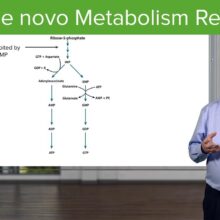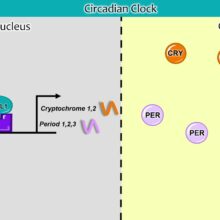Temperature Regulation Of The Human Body | Physiology | Biology | FuseSchool
Temperature Regulation Of The Human Body | Physiology | Biology | FuseSchool
Have you ever wondered why you sweat when you get too hot from running or shiver on a cold winter’s day? In this video, we are going to explain why your body behaves like this.
Humans are endotherms. This means we are warm-blooded. We keep our body operating at thirty seven degrees Celsius regardless of the external conditions. However, this is a real challenge as our environment changes all the time depending on the weather, our clothes, if we are inside by the fire or outside having a snowball fight. So how does this work?
It’s quite similar to the heating system in a house. In a house, there is a thermostat that measures the temperature. If the house gets cold, the thermostat will tell the radiators to turn on and heat it up. If it’s too hot they will be told to switch off. Simple.
Your body works in just the same way. In your brain, there is a special area called the hypothalamus. It measures the temperature of the blood flowing through it and also collects information from temperatures senses around the body. It then decides if the temperature is too hot or too cold and will try and bring it back to thirty seven degrees Celsius.
If you are too hot, the hypothalamus can then send signals out to the body via the nervous system that can cause various effects. It can send a signal to your skin and cause sweat glands to secrete sweat on to the surface of the skin. The sweat itself is not cold but it works because it takes the heat away from your body in order to evaporate it.
Another way of losing is vasodilation. Look at how the blood vessels nearest to the surface open wide and allow blood to flow through them. The heat is radiated from the blood into the air and the blood cools down.
If you get too cold you can do the opposite with these blood vessels and place them off, keeping the blood away from the surface of the skin. This is called vasoconstriction. You can also start to shiver – this is when your muscles contract in order to make heat. Another effect you may have noticed when you are cold is goose pimples. If you look more closely at the goose pimples, what you realise is that each of the little bumps has a hair sticking out of it. These hairs are stood up on end to trap a layer of air around the skin. Air is a fantastic insulator of heat and this will keep you nice and cozy.
All these effects are examples of negative feedback that help with homeostasis. For more information on these processes watch the video, “What is homeostasis?”.
SUPPORT US ON PATREON
SUBSCRIBE to the FuseSchool YouTube channel for many more educational videos. Our teachers and animators come together to make fun & easy-to-understand videos in Chemistry, Biology, Physics, Maths & ICT.
VISIT us at www.fuseschool.org, where all of our videos are carefully organised into topics and specific orders, and to see what else we have on offer. Comment, like and share with other learners. You can both ask and answer questions, and teachers will get back to you.
These videos can be used in a flipped classroom model or as a revision aid.
Find all of our Chemistry videos here:
Find all of our Biology videos here:
Find all of our Physics videos here:
Find all of our Maths videos here:
Instagram:
Facebook:
Twitter:
Access a deeper Learning Experience in the FuseSchool platform and app: www.fuseschool.org
Follow us:
Befriend us:
This is an Open Educational Resource. If you would like to use the video, please contact us: info@fuseschool.org
[ad_2]
Source link





your voice.
Write about temperature regulation in homeotherms
Great vid love you guys, you have changed ma life
Love from INDIA
If the body temperature regulates itself to 37 degrees then why do we feel most comfortable at 23 to 25 degrees and always set our air conditioners and thermostat to 23 degrees?
can we make a blood temperature control needle that changes blood temperature, I have model but I cant share it on YouTube, or it will be blocked , please tell me your thoughts
Very helpful video..nd your voice😍😍💫
Your voice isn't clear that's why I feel too much difficulty while taking lecture so make sure that while recording lecture your voice must be clear so that people who watch your videos don't feel any difficulty
but why are we hot and why is heat happening?
goose pimples?
Physics student taking bio classes 😁
I had a temperature of 38 slightly more frequently, mostly in 2019 and 2020
Great presentation – easy to understand
God is very amazing the way he created and build up our body. Only stupid people say that this amazing work came by nothing or so call evolution.
Revelation 4:11
What is goose pimples lmao
I like her voice 😁
I feel hot but my temprature is 97.1 is it therma dsyregulation
Where can u find the temperature sensor?
my teacher linked this for us to watch
ok but how do our bodies passively generate heat?
Great job! You teach more than school does, lol.
Irritated voice You have
i dont understand..ur voice..is not clear …
JEEEEZ BRUH YOU SPEAK SO SLOW I FOUND IT TOO SLOW ON 1.5x LIKE SRSLY YOU KNOW THIS IS GONNA MAKE STUDENTS THAT NEED THIS INFO FALL ASLEEP AND FAIL SCIENCE!
Great video, but omg your gorgeous voice gives me chills.
Why the fuck does my h.thalamus send signals all over my body to have me soaking wet with sweat all the time? How do i reprogramme the bastard?
Goose Pimples?
was that a chicken at the end lol
Fever; am i a joke to you*
Thanks!!
I want to ask besides sweating how do our body reaction to an increasing in body temperature during exercise?
Hypothalamus is a guy who gives me orders about temperatures!
Okay I’m confused. If vasoconstriction happens when we are cold then why is our cheeks red when we are cold?
What would happen if a negative feedback mechanism did not return the value
of some parameter such as blood pressure to its normal range?
your voice is very raspy
Thanks https://youtu.be/onBenNsCSc4
Watch this too might it help …
Well I understand nothing 😔…I don't know why cause u explained well but I understand nothing
Excellent presentation. Very simply and very clearly explained. I have searched numerous "technical" articles and none of them say HOW the body regulates temperature. Thank you, well done ! ! !
Nicely explained. Better than my book